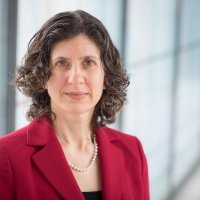The Last Million: Europe’s Displaced Persons from World War to Cold War
The suffering of The Last Million Eastern Europeans in Germany did not cease on V.E. Day, but continued as World War morphed into Cold War. While the Soviet Union demanded their repatriation, the US and the UK refused to return them to Soviet-dominated homelands. The Last Million, including nearly 250,000 Jewish survivors, would remain in displaced persons camps in Germany for the next three to five years. Nazi collaborators and war criminals, promoting themselves as anti-Communist activists, would eventually gain entry to the US, the UK, and elsewhere, while the Jewish survivors, accused of being Communist sympathizers or agents, were denied access.
David Nasaw was, until January, 2020, the Arthur M. Schlesinger Professor of History at the CUNY Graduate Center. His publications include The Chief (2000), the Bancroft Prize-winning biography of William Randolph Hearst; Andrew Carnegie (2006), a Pulitzer Prize finalist and winner of the New-York Historical Society Prize in American History; and, most recently, The Patriarch: The Remarkable Life and Turbulent Times of Joseph P. Kennedy (2012), a Pulitzer Prize finalist and chosen by the New York Times as one of the best five non-fiction books of the year.
The Washington History Seminar is co-chaired by Eric Arnesen (George Washington University and the National History Center) and Christian Ostermann (Woodrow Wilson Center) and is organized jointly by the National History Center of the American Historical Association and the Woodrow Wilson Center's History and Public Policy Program. It meets weekly during the academic year. The seminar thanks its anonymous individual donors and institutional partners (the George Washington University History Department and the Lepage Center for History in the Public Interest) for their continued support.
Speaker

Moderators


Professor of History, The George Washington University. Director, National History Center of the American Historical Association.
Panelists


Hosted By

History and Public Policy Program
A leader in making key foreign policy records accessible and fostering informed scholarship, analysis, and discussion on international affairs, past and present. Read more


Global Europe Program
The Global Europe Program is focused on Europe’s capabilities, and how it engages on critical global issues. We investigate European approaches to critical global issues. We examine Europe’s relations with Russia and Eurasia, China and the Indo-Pacific, the Middle East and Africa. Our initiatives include “Ukraine in Europe”—an examination of what it will take to make Ukraine’s European future a reality. But we also examine the role of NATO, the European Union and the OSCE, Europe’s energy security, transatlantic trade disputes, and challenges to democracy. The Global Europe Program’s staff, scholars-in-residence, and Global Fellows participate in seminars, policy study groups, and international conferences to provide analytical recommendations to policy makers and the media. Read more


Kennan Institute
After more than 50 years as a vital part of the Wilson Center legacy, the Kennan Institute has become an independent think tank. You can find the current website for the Kennan Institute at kennaninstitute.org. Please look for future announcements about partnership activities between the Wilson Center and the Kennan Institute at Wilson Center Press Room. The Kennan Institute is the premier US center for advanced research on Eurasia and the oldest and largest regional program at the Woodrow Wilson International Center for Scholars. The Kennan Institute is committed to improving American understanding of Russia, Ukraine, Central Asia, the South Caucasus, and the surrounding region through research and exchange. Read more
